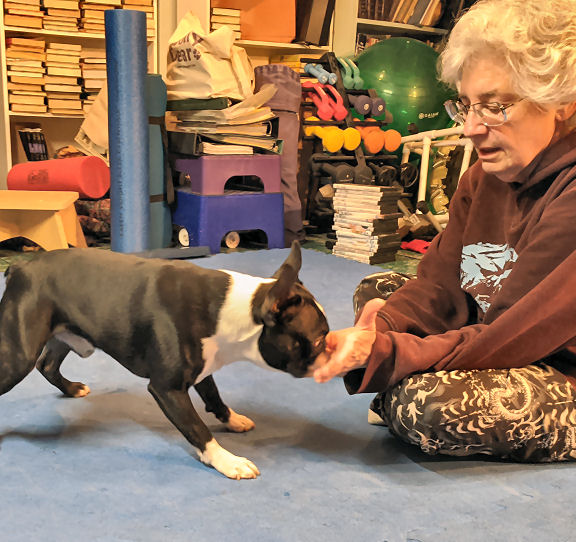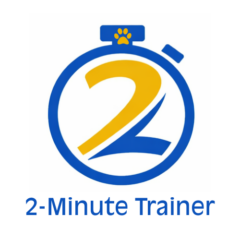Everybody who lives with your dog should play dog training games. It’s the only way to make sure the dog listens to everybody.
“Board and train” programs are popular now, especially with the many inexperienced people who have acquired dogs in the last year. It sounds like a great idea – send your unruly dog away for a couple of weeks and you’ll have a model citizen canine back.
It doesn’t work that way. The dog may behave wonderfully well for the trainer, but unless you’re familiar and comfortable with the methods, gestures, and words used to get the dog to “be good,” the dog obeys the trainer, not you.
Dogs are wonderful at keeping things in context. “Mom” always insists they sit and stay before she’ll put their food bowls down. She gives them a “release” word, and they’re free to eat. On the other hand, “Dad” is a soft touch and never makes them wait. They swarm as soon as the food bowls leave the kitchen counter.
Have your own games
Every member of the family can play their own games with the dog. Or you can share. It doesn’t matter. What matters is that the dog has a relationship with each member of the family. Even children can play training games.
Oftentimes, they’re better dog trainers than adults, because they don’t have the built-in inhibitions that many adults do. Children often feel more free to talk to dogs, get down on the floor, and play games.
Family dynamics
Dogs understand that they can have different relationships with each member of the family. The crucial point is that each person establishes, and maintains, a relationship with the dog.
We kind of fell down on the job, here. We are sisters who share a house. But we don’t “share” dogs. Because we compete with our dogs in various dog sports, including Obedience, Rally, and Agility, we have specific goals for many of our training games.
Establishing a strong teamwork relationship with our individual dogs is essential. So the other sister, especially when the dog is young, has a tendency to back off.
Get in there and train
The consequence of this was brought home this week. Fran’s 2-year-old Boston Terrier Simon has no training relationship with Hope. He doesn’t pay any attention to her. None.
Simon is a smart and good little guy. But there are things he does that are, not “bad,” but really annoying. And he hasn’t listened to Hope at all when she’s told him to knock it off. Here’s a post about another aspect of dogs being annoying.
Play dog training games

That changes today. Hope will take over at least one game session a day with Simon for at least a week. Then we’ll maintain the connection with at least one or two sessions per week.
It’s opened our eyes to the possibilities we’ve been missing by training our own dogs exclusively. Swapping dogs will not only help us live peaceful lives, it will build a better relationship with each dog in the house. We’ll also learn to be better trainers as we get to know how each dog plays.
